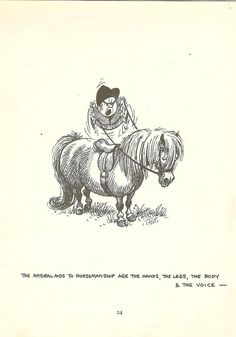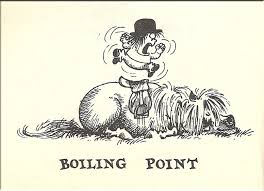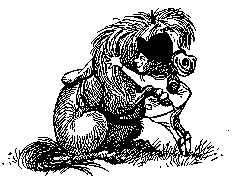Communication Breakdown...
Posted on
Communication breakdown between horse and rider.
“My horse isn’t listening to me”. A phrase usually accompanied by the rider kicking harder in frustration! 
So how do we get the horse to “listen”? Do we simply kick harder, use the whip more, slap the reins on the horse’s shoulders, use spurs, lean forward and ride like a jockey trying to win the grand national or simply get off?!! My answer would be none of the above, but to ask one simple question – WHY. Why isn’t the horse listening? What is causing a breakdown in communication?

To get the answer to the “WHY”, I always start with the obvious question of “Is it a physical issue”, after all, if the horse is in pain with either a physical issue, or a badly fitting item of tack, commonly the saddle, then why would the horse listen and perform to your wishes? Would you run a marathon with a stone in your shoe?
When these questions have been answered, and all checks out fine, then the next question for me is “is the rider at fault” more often than not, it is the rider, but unintentionally, in my experience it is usually down to a lack of understanding of the aids and what they mean to the horse.
If you stop for a moment and imagine you are faced with another person who speaks a language you don’t, you need to ask the other person to do something, but as you don’t speak their language, and they don’t speak yours, immediately you are in a position where you are both in limbo! So how do you get your question over to the other person? Should you shout, point, push them towards what you want, jump up and down and have a tantrum? Although the last one may be an option through frustration, what is actually needed is a mutual understanding, so you must learn each-others language to enable the communication to flow.
See the resemblance here to the horse and rider?
So why won’t my horse listen to my aids, especially when I ask him to go faster? This is one of my favourite questions, as more often than not the rider is at fault here, again unintentionally. The usual reason for this “shut down” is due to desensitisation from constant repetition of an aid, i.e. kicking every stride, sometimes called “White noise”. The majority of horses are sensitive enough to feel a fly land on them, just watch a horse grazing in summer, a fly lands on its side and it immediately swishes its tail and twitches its muscles to remove the fly. So when we apply our leg aids we should be aware of that and once the horse has responded, we should reward the horse by stopping using the leg and allowing the horse to do what we asked of it. Riders who kick every stride are desensitising the sides of the horse, and in a nutshell, training the horse to ignore the aid!
A little test for you to try the next time you ride, give a leg aid, get the response you asked for, leave the horse alone and DO NOT apply another aid until the horse STOPS doing what you asked in the first place, count how many steps it took from “going” to “stopping”, this could be 2 steps to 20, but it is a very valuable exercise to see how often you give an aid unnecessarily, therefore training your horse to ignore you! Rein aids are also very often over used, so you could try the same test, but with your reins rather than your leg.
So “my horse goes forward happily but doesn’t do “X” or “Y” when I say, so he’s ignored me again”, once again not uncommonly a rider error. A lack of preparation is a very common fault here, you should be aware of how much, or little, preparation is required for anything you ask of your horse, suddenly surprising your horse with an abrupt aid and being alarmed when he doesn’t respond, or does something different to what you expected, is not really the horse not listening, its him trying to work out your request that wasn’t clearly explained to him.
“My horse did a great shoulder in, or something equally technical, yesterday, today he ignored my aids”. YOUR question here should firstly be - did I ask it the same or were my aids different? When we add in more technical work, especially if teaching the horse something new, we MUST be clear and repetitive (not in a “white noise” type way) to ensure the horse understands what we want. If he is more established and hasn’t performed the movement today the way he did yesterday then perhaps he may be tired, or tight from the previous day’s work, horses aren’t machines after all!
There are lots of questions your horse may ask of you, but if you can ask yourself “WHY” before you act, hopefully you and your horse will speak the same language.

Horses are mostly biddable animals and generally try to please, even when they may be receiving mixed messages!
If YOU have a question, then do please comment and I will try and answer it for you!
*Pictures courtesy of Thelwell.*
Add a comment: